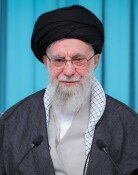[Opinion] Republic of Plastic Surgery
[Opinion] Republic of Plastic Surgery
Posted August. 22, 2006 03:01,
American talk show queen Oprah Winfrey described Korea as the Republic of Plastic Surgery on TV two years ago. Two movies about plastic surgery are now drawing attention in Korea. In the movie Cinderella, directed by Bong Man-dae, a horror story unfolds surrounding womens desire to be beautiful and maternal love, while director Kim Ki-duks Time asks whether plastic surgery can change a persons inner being and past. It is rather belated that we have movies on plastic surgery now, since nothing illustrates the Korean society better than plastic surgery.
The obsession with appearances, commercialization of sex, low-quality mass media, and desire for high social status are the factors intertwined to make Korea the Republic of Plastic Surgery. Sponsored by the Ministry of Health and Welfare, a team led by professor Ryu In-kyun of Seoul National University conducted a survey of 1,565 female university students from 2003 to 2004, and found that 53 percent of the respondents had had plastic surgery, while 82 percent said they wanted to have plastic surgery. The survey also supported the idea that double eyelid surgery was done as the parents present to their daughters who are becoming freshmen, as 25 percent of the respondents had received the eyelid surgery. Professor Ryu diagnosed the condition of the Korean society as body dysmorphic disorder, saying that people express their internal struggle in the form of concern over their physical appearance through plastic surgery.
Currently, there is a hot debate over the tax system revision plan, which intends to provide income reduction for cosmetic or plastic surgery and herbal medicines. This policy aims to prevent tax evasion by plastic surgeons and dermatologists by better identifying their earnings from practices not covered by insurance. However, many argue that tax reduction on plastic surgery is not fair with regards to other patients and that it will further fan the craze for such surgery.
The government came up with such a plan because there is widespread tax evasion among high-income doctors. Many doctors shun receiving credit cards for practices not covered by insurance, for the fear of exposing their taxable income. Anyhow, it seems that Korea deserves the nickname, the Republic of Plastic Surgery, given that tax breaks will be offered on the surgery. Nevertheless, the question remains whether such a measure will be effective in revealing all taxable earnings of doctors.
Chung Sung-hee, Editorial Writer shchung@donga.com







